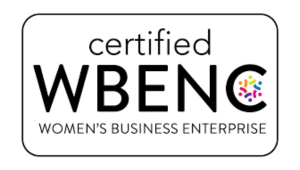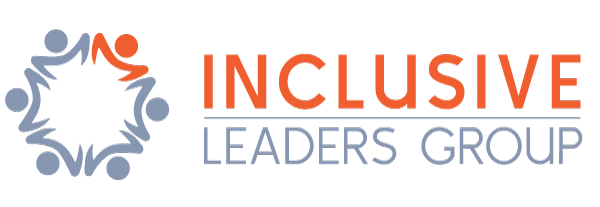Over 60%of workers consider diversity, equity, inclusion, and belonging (DEIB) a critical factor in their company’s ability to drive success. Yet a majority of companies still lack clear, relevant DEIB strategies. By focusing on DEIB, organizations can transform how their employees work with and relate to each other resulting in greater engagement, collaboration, innovation, and performance. Companies prioritizing DEIB in 2023 should consider these critical elements.
3 Critical Elements of DEIB in 2023 and Beyond
- Aligning DEIB and HR
Because they often share talent and organizational development responsibilities, the roles of DEIB and HR leaders frequently overlap. A DEIB leader may sit in on HR-led succession planning reviews as an impartial observer to identify possible bias and lack of inclusive leadership during selection, for example. These leaders may also collaborate on employment branding and talent acquisition initiatives to ensure the company’s process is equitable and inclusive. But in situations where are there are no designated DEIB leaders or experts, HR must operate with DEIB as top of mind.
Not solely focused on diversity numbers any longer, DEIB has evolved into what HR was initially built to deliver: a safe space for all employees. More companies are partnering DEIB consultants and HR to lead their people — from the C-suite to entry-level employees — with an equitable and inclusive approach to talent management. An inclusive culture for employees from all backgrounds creates a welcoming feeling of emotional safety. Employees need to feel comfortable trusting their leaders, teams, and sharing their true identities.
- Investing in DEIB as a Business Strategy: Not Just an HR/Compliance Program
Employees, especially Millennials and Gen Z talent, want to see their companies “walk the walk” by championing and implementing DEIB strategies to make impactful changes in the culture. In fact, nearly 80% of workers expect their company to value DEIB. More organizations talk about the need for DEIB. But they must turn those promises into action by investing in DEIB initiatives, like culture championing employee resource groups (ERGs) or hosting DEIB conversations focused on retention, inclusive benefits, and policies. A failure to do so shows a lack of commitment to their employees.
Organizations also need to invest in DEIB. Positive change and DEI commitment happen when HR teams have buy-in from the CEO and executive leadership and the budget and headcount to drive their DEIB goals forward. For example, a company wanting to foster a sense of belonging and connection in a hybrid workforce must budget for a multi-year DEI strategic plan with initiatives and learning and development plan.
Employers that don’t turn their DEI statements of commitment into action will continue to see the same cycle of losing top talent and lack of employee engagement. Ultimately, as employees increasingly prioritize culture and work environment over compensation, they will stay with an employer that aligns with their needs (has a publicized DEI strategic plan).

- Emphasizing Allyship and Inclusive Leadership
Employees are 50% less likely to leave a company where they feel a sense of belonging. Anyone has the potential to be an ally. Allies recognize that though they’re not a member of the underrepresented or marginalized talent groups they work with, they make a concerted effort to better understand the struggle, every single day. Because an ally might have more privilege and recognizes said privilege, they are powerful voices alongside oppressed ones.
TO BE AN ALLY IS TO…
- Take on the struggle as your own.
- Transfer the benefits of your privilege to those who lack it.
- Amplify voices of the oppressed before your own.
- Acknowledge that even though you feel pain, the conversation is not about you.
- Stand up, even when you feel scared.
- Own your mistakes and de-center yourself.
- Understand that your education is up to you and no one else.
Download this FREE Guide to Allyship for more information.
WHAT IS INCLUSIVE LEADERSHIP?
Inclusive leadership definition: the capacity to manage and lead a heterogeneous group of people efficiently, while respecting their uniqueness in an empathetic, bias-free way. It’s an authentic leadership style that rules out discrimination, bias and favor based on color, race and other protected characteristics and allows employees to feel valued for their own input.
Why is inclusive leadership critically important today?
We live in a diverse business world. There’s not just variability in our workforce, there is also diversity in the customers we want to attract, in the messages we share or consume via various platforms, and the markets we plan to expand to.
Inclusive leadership helps balance all these elements – inclusive leaders adapt quickly to diverse scenarios and alternate perspectives with an open, non-judgmental mind to bring on the best results possible. And research shows that, when done right, there are many benefits; teams perform better and more collaboratively and make better overall decisions.
Weaving DEIB into a company’s culture and DNA should remain a business priority in 2023 and beyond. To meet evolving employee needs, organizations must commit to measuring, evaluating, and adjusting their DEIB initiatives and strategies. This commitment creates an environment where employees feel welcomed, respected, and valued.
Are you ready to explore executing a DEI strategic plan to meet your business goals?
See our approach and client engagements that may be right for you.









